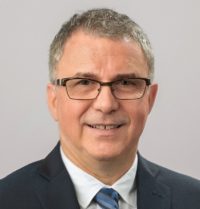December 14, 2021
The Top 5 Financial Planning Challenges in the First 10 Years of Retirement

By Chris Palabe, CFS®, AIF®
The milestone you’ve been working and saving toward for decades is finally within sight: retirement. You’re probably ready to put all your years of calculating, strategizing, and saving behind you, but not so fast! In order to maximize your golden years to their fullest potential, it’s important to continue to make sound financial decisions and take action when it comes to your financial strategy.
Retirement comes with its own set of obstacles, and we’ve found that most retirees face the same 5 financial planning challenges within the first 10 years. Today let’s go over these challenges so you’re prepared and confident to face them head-on.
1. Not Creating a Withdrawal Strategy
How do you turn your hard-earned savings into an income stream to replace the income you will lose from not having a steady paycheck? While there’s no easy answer, how you take your money out is just as important as how you put it in. The right decision for you will include tax planning, reviewing your tax return, and, most importantly, distribution optimization. That’s why you should capitalize on your wealth by determining a tax-efficient way to withdraw funds in your golden years.
Different financial accounts are taxed at different rates. Traditional IRAs and 401(k)s get taxed at the ordinary income tax rate when you withdraw. Roth IRAs and Roth 401(k)s are taxed beforehand, so the money is withdrawn tax-free. Funds in a taxable investment account are taxed at the capital gains tax rate, which is different from your ordinary income tax rate.
Calculating when might be the best time to pull from each account is enough to give anyone a headache. But the last thing you want is to get hit with a hefty tax bill when you’re trying to stretch your money for decades. Create a withdrawal strategy with the help of a trusted professional who can assist you in withdrawing funds at a sustainable rate and help ensure that you’re doing it in a tax-efficient way.
2. Throwing the Budget Away
Many people spend their retirement years doing all the things they never got to do when they were working, starting a passion project, remodeling the house, traveling the world, and more.
It’s easy to underestimate the amount of money you’ll spend during those first few years when you don’t account for all these “extras.” Overspending, even for a short period, can shave years off the longevity of your assets. The solution? Create a spending plan. Calculate your monthly income given your withdrawal strategy, and then create a budget, tracking your money along the way so you stick to your goals.
3. Ignoring Inflation
Another major challenge we see new retirees face is the desire to play it safe in the stock market. This can do more harm than good as it can lead to inflation risk.
The long-term average inflation rate for healthcare expenditures is 5.22%, (1) and the current average inflation rate is a whopping 6.2%. (2) This means retirees are more likely to feel the effects of inflation due to necessary expenses, such as healthcare costs.
A 2021 Retirement Risk Readiness Study from Allianz insurance company found that 71% of participants were worried about the rising costs of healthcare, 67% were worried about rising costs of living, and 66% were worried that market downturns would affect their savings. (3) These percentages represent significant increases from the survey’s 2020 results. (4)
With a retirement that could easily last 20 to 30 years, inflation is a significant threat to your nest egg. Sit down with a trusted professional who can help you strike a balance between principal protection and growth and be proactive about inflation risk.
4. Neglecting to Create an Emergency Fund
Could you comfortably pay for an unexpected, major expense in retirement without jeopardizing your financial future? For most of us, the answer is no. Just as you were taught to have an emergency fund in your formative years, it’s even more critical to have one in your retirement years.
Most professionals recommend that retirees have at least 3 to 6 months of expenses in an easily accessible savings account, (5) but with the havoc these past two years have wreaked on many peoples’ finances, 12 to 18 months might be a better goal. This may sound like a lot, but an emergency fund serves two purposes: it covers unexpected expenses and can provide stability during economic downturns. This means you can optimize your portfolio to help beat inflation, as suggested above, while having a safety net to fall back on.
There are other factors that should be considered in determining how much of an emergency fund to maintain, including pensions, other guaranteed income streams, and your required minimum distributions (RMDs). Working with a professional can help you determine how much of an emergency fund to maintain given your specific situation.
5. Planning on Your Own
Have you been DIY-ing your personal finances up until now? Even if that’s worked for you in the past, retirement is definitely not the time to wing it. If you turn to a doctor for health concerns and a mechanic for car trouble, why wouldn’t you enlist the help of an experienced financial professional to help you pursue your vision of retirement? Having a trusted financial advisor by your side can be the difference between having a retirement fund that dries up or one you can’t outlive.
Our team at Palabe Wealth would love to be the qualified professionals you turn to for help tackling these challenges (and others) on the road to a confident and fulfilling retirement. Through a long-term relationship and a sound process, we can help you retire with confidence. Schedule a 15-minute introductory phone call or call us at 847-249-6600 to learn if we are the right fit for your financial goals.
About Chris
Chris Palabe is the founder and CEO of Palabe Wealth, a financial planning firm providing retirement plan strategies for businesses and individuals. For 25 years, Chris has been serving his clients with customized plans and a boutique approach. He started his firm because of his passion for making a difference in others’ lives and a genuine desire to build long-term relationships with his clients so they can seek to achieve their ideal retirement and manage risk. Chris is a Certified Fund Specialist® (CFS®) and Accredited Investment Fiduciary® (AIF®) professional and has a degree from Université Denis Diderot (Paris VII). When he’s not working, you can usually find him riding horses and competing in dressage at a national level. He also loves reading, watching movies, and eating out. To learn more about Chris, connect with him on LinkedIn.
This material was prepared for Palabe Wealth, Inc.’s use.
____________
(1) https://ycharts.com/indicators/us_health_care_inflation_rate
(2) https://www.usinflationcalculator.com/inflation/current-inflation-rates/
(3) https://www.allianzlife.com/-/media/files/global/documents/2021/07/08/19/42/ent-3625.pdf
(4) https://www.allianzlife.com/-/media/files/allianz/pdfs/newsroom/ent-3474.pdf
(5) https://www.thebalance.com/how-much-emergency-savings-do-retirees-need-4582473

Chris Palabe, CFS, AIF®
Chris Palabe is the CEO and a Financial Advisor at Palabe Wealth, a firm that provides exceptional expertise in the Financial Planning space. For over 25 years, he has cultivated a deep understanding of the complexities of wealth management and retirement planning, making him a valued advisor to both Plan Sponsors of 401(k) plans and Individual Investors.
Holding esteemed designations such as Certified Fund Specialist (CFS) and Accredited Investment Fiduciary (AIF), Chris showcases his commitment to upholding the highest standards of investment advice and fiduciary responsibility in his advisory relationships. These designations are a testament to his knowledge and dedication to providing clients with sophisticated and ethical financial guidance.
He holds his Series 6, 7, 63, and 65 licenses through LPL Financial, which qualify him to offer a broad range of financial products and services.
Chris’s distinguished career is characterized by his unwavering commitment to his clients' financial well-being. He focuses on crafting tailored strategies that aim to optimize retirement outcomes and financial independence. He continually strives to help the individuals he works with on their path towards financial success.
Over the years Chris has refined a consistent, strategic investment philosophy supported by a significant body of academic research. He believes that a widely diversified portfolio of investments tailored to each client’s unique risk tolerance and financial goals is the key to their financial success.
Beyond his professional achievements, Chris has a profound passion for dressage, a highly skilled form of horse riding performed in exhibition and competition. This discipline requires a remarkable level of dedication, precision, and harmony between rider and horse, qualities that mirror his approach to financial planning.






